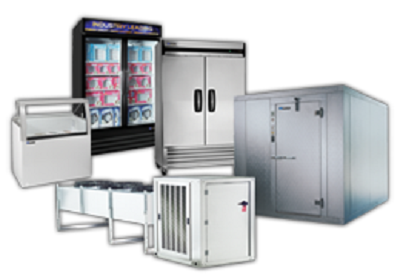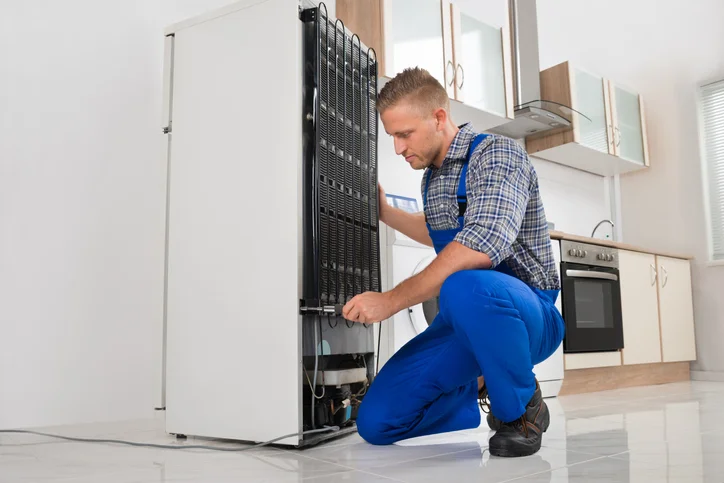Don’t Ignore It—Washing Machine Repair Dependable Refrigeration & Appliance Repair Service on Risks of Waiting Too Long
Don’t Ignore It—Washing Machine Repair Dependable Refrigeration & Appliance Repair Service on Risks of Waiting Too Long
Blog Article
Necessary Tips for Effective Ref Repair to Extend Device Lifespan
When it concerns your fridge, correct fixing and upkeep are essential for durability. You may not realize how little concerns can escalate if they're left unaddressed. Normal examinations and simple repairs can conserve you from expensive replacements down the line. Comprehending typical issues and recognizing when to act can make all the difference. Let's check out some important pointers that will certainly assist you keep your fridge running smoothly for years to find.
Recognizing Typical Refrigerator Troubles
Fridges are important in maintaining your food fresh, but they can come across an array of typical issues that disrupt their efficiency. If you discover food spoiling quicker than common, check the thermostat setups or consider if the door seals are damaged. Identifying these problems early can conserve you time and money in repairs, ensuring your fridge runs efficiently and successfully.
Routine Upkeep Practices
To keep your home appliances running smoothly, you need to remain on top of routine maintenance techniques. Clean the condenser coils, check the door seals, and monitor the temperature level setups to ensure peak efficiency. These basic tasks can conserve you time and cash on fixings down the line.
Clean Condenser Coils Routinely
Cleansing your condenser coils routinely can considerably improve your home appliance's performance. Dirt and dust build up on these coils over time, causing your device to function harder and eat even more power. To keep them clean, unplug your device and carefully get rid of any type of protective covers.
Check Door Seals
Three easy steps can aid you assure your device's door seals remain in excellent condition. Inspect the seals consistently for any kind of cracks, rips, or indicators of wear. These problems can cause air leaks, impacting effectiveness. Second, clean the seals using warm, soapy water to eliminate any kind of debris or crud. A clean seal guarantees a limited fit and better performance. Ultimately, do an easy test by shutting the door on a paper. If you can easily draw it out without resistance, the seal might need replacing. By following these actions, you'll keep your device's effectiveness and longevity, conserving you money on energy bills and fixings in the future.
Monitor Temperature Level Settings
Consistently monitoring your appliance's temperature setups is vital for ideal performance and performance. Whether you're taking care of a refrigerator, fridge freezer, or stove, watching on these settings can avoid many problems. For refrigerators, go for temperatures between 35 ° F and 38 ° F; for freezers, stay 0 ° F. If the temperatures are expensive or reduced, your appliance might function harder, wasting power and reducing its lifespan. Make use of a thermometer to check these settings frequently, particularly after major modifications, like relocating your home appliance or adjusting the thermostat. If you notice variations, adjust the settings appropriately and consult the user guidebook for guidance. By staying aggressive about temperature level monitoring, you'll ensure your devices run smoothly and last longer.
Fixing Air Conditioning Concerns
When your fridge isn't cooling down properly, it can result in ruined food and lost cash, so attending to the concern without delay is critical. Begin by checking the temperature level settings to confirm they're at the suggested degrees, usually around 37 ° F for the refrigerator and 0 ° F for the fridge freezer. If the setups are appropriate, examine the door seals for any type of spaces or damages; a defective seal can enable cozy air to go into.
Following, examine the vents inside the refrigerator and freezer. Confirm they're not obstructed by food items, as this can interrupt air flow. Listen for the compressor; if it's not running or making uncommon sounds, it might need interest. Examine the condenser coils, normally located at the back or bottom of the unit. Dust and particles can build up, creating cooling concerns. Clean them with a vacuum cleaner or brush to maximize performance. If problems persist, it may be time to call an expert.
Taking Care Of Water Leak and Ice Build-Up
If you're handling water leakage or ice build-up in your device, it's crucial to determine the resource of the trouble. By determining where the water is originating from, you can avoid more concerns and avoid pricey repair work. Allow's explore some reliable approaches to take on these typical problems.
Determine Leak Resources
How can you effectively recognize the resources of water leakage and ice build-up in your appliances? Beginning by checking the seals and gaskets on your refrigerator and fridge freezer doors. By methodically inspecting these locations, you'll pinpoint the source of the problem, enabling you to take the essential steps to repair it and expand your device's life expectancy.
Stop Ice Formation
To stop ice formation in your home appliances, beginning by validating the temperature setups are proper. If your fridge or fridge freezer is also chilly, it can result in too much ice accumulation. Inspect the door seals frequently; damaged seals can let warm air in, triggering condensation and ice formation.
Keep the home appliance well-ventilated and avoid congestion, as this can block air movement - Best Appliance Repair Company In Oro Valley Dependable Refrigeration & Appliance. Also, regularly defrost your fridge freezer if it doesn't have an automatic defrost feature.
If you observe water leakage, identify and repair any kind of obstructed water drainage holes, as they can add to ice build-up. Lastly, clean the coils and validate they're functioning properly to maintain peak efficiency. Taking these actions will aid extend your appliance's lifespan and performance.
Dealing With Noisy Refrigerator Appears
While it may seem disconcerting, a loud fridge often indicates small concerns instead than significant malfunctions. Common culprits look these up include the compressor, fans, and water lines.
Next, look for loosened items inside. In some cases, containers or shelves can rattle, producing undesirable sound. Tighten or rearrange them to get rid of the noises.
If you notice a clicking sound, it may be the defrost timer. This is typically safe yet might suggest it requires assessment.
Finally, verify your refrigerator is level. An out of balance home appliance can produce resonances and noise. Utilize a degree to examine, and readjust the feet if needed. Dealing with these concerns without delay can aid maintain your refrigerator's performance and extend its life-span.
When to Replace Parts vs. Complete Substitute

Take into consideration the cost of repair work versus the appliance's worth. Furthermore, if you observe continuous troubles that keep recurring, it's an indicator that your home appliance has reached the end of its life.
Understanding When to Call a Professional
Exactly how can you inform when it's time to call in a specialist for appliance repair work? If your home appliance quits functioning completely or often trips circuit breakers, it's another red flag.
You must try this additionally consider your very own comfort degree with fixings. If you're not sure regarding diagnosing the trouble or lack the right devices, it's ideal to reach out for help. Keep in mind, trying challenging fixings can lead to more damages or perhaps safety hazards.

Frequently Asked Questions
Just how Frequently Should I Clean the Fridge Coils?
You need to clean your refrigerator coils every six months. This assists maintain performance and prevents overheating. If you notice extreme dust or animal hair, tidy them more frequently to guarantee your fridge runs smoothly.

Can I Make Use Of Vinegar for Cleansing My Refrigerator?
Yes, you can use vinegar to cleanse your refrigerator! It's an excellent natural cleanser that gets rid of smells and discolorations. Refrigerator repair experts Dependable Refrigeration & Appliance Repair. Simply mix it with water, use it to surfaces, and clean down for a fresh, tidy fridge
What Temperature level Should My Refrigerator Be Set To?
You should set your refrigerator to 37 ° F(3 ° C) for ideal food conservation. This temperature maintains your food fresh while preventing wasting, ensuring your groceries last much longer and lowering waste. It's a simple change you can make!
Does a Fridge Required to Be Leveled?
Yes, your fridge needs to be leveled. see this here If it's unequal, it can affect cooling down effectiveness and trigger excess sound. Check the leveling legs and readjust them to guarantee appropriate equilibrium for optimal efficiency.
Exactly How Can I Lower Refrigerator Power Intake?
To reduce your refrigerator's power usage, maintain it clean and well-ventilated, inspect door seals for leakages, established the temperature in between 35-38 ° F, and avoid straining it. These actions can substantially reduce your power bills.
Report this page